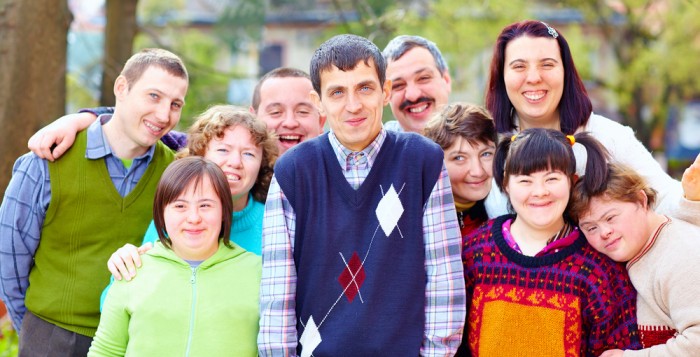OMHSAS has issued a new bulletin, OMHSAS-16-12, regarding the provision of peer support services.
Incorporating Key Findings from Surgeon General’s Report on Addiction
The opioid crisis in Pennsylvania and in America has resulted in a major call to action from Pennsylvania’s leadership as well as national leaders. Facing Addiction in America: The Surgeon General’s Report on Alcohol, Drugs and Health calls for increased integration of primary care and addiction services. Join one of the authors of the report, Dr. Connie Weisner, in a discussion of the findings and what efforts are needed to support integrating screening, assessments, interventions, use of medications, and care coordination. Hear practical examples from an HRSA-funded primary care provider about the steps they take to successfully and continually address substance use.
The SAMHSA-HRSA Center for Integrated Health Solutions will host a webinar focusing on the substance use and opioid crisis and coordinated care on Thursday, January 5, 2017, 3:00 pm.
After this webinar, participants will:
- Understand the key findings related to integration of substance use and primary care services detailed within The Surgeon General’s report on Alcohol, Drugs and Health;
- Identify concrete ways primary care settings can integrate substance use treatment and early intervention activities into their services;
- Describe why early intervention activities such as SBIRT are important to overall health;
- Gain ideas for using the report to educate staff, board, and clients to facilitate conversation about addictions; and
- Learn about useful resources for setting up and providing substance use services in an integrated health setting.
Implementation of Community HealthChoices Postponed
The decision for Pennsylvania to postpone the implementation of Community HealthChoices (CHC) was announced today. This decision was made as a result of the delays associated with the resolution of several bid protests.
Following the announcement of the selection of the managed care organizations (MCOs) that would deliver health care coverage in Community HealthChoices, several protests were filed. As a result, the progress of major components of CHC implementation was delayed, resulting in the Department of Human Services (DHS) feeling uncertain with moving forward with their established start dates. Some of the impacted activities associated with this decision include:
- Developing an adequate network: DHS has not been able to engage with the selected offerors. The agreement and rate negotiations and finalization typically take six weeks, and the agreements need to be finalized before the MCOs are able to engage in network development activities. The current delays mean the MCOs will not have enough time to meet the network adequacy requirements by July 1, 2017.
- Completing a readiness review: Readiness review is a requirement for the MCOs before they are certified to be able to go live and provide services. Protests prohibit MCO engagement for readiness review and the window to complete the certification continuously shrinks. New programs require a minimum of six months to complete a readiness review.
- Communicating: Communication about selected MCOs and their available networks is a critical component to CHC education and outreach. Individuals who will be enrolling in CHC need to have complete information about the MCO provider network in order to be able to make an informed provider choice. That communication will not be able to take place until the agreements are largely finalized and the MCOs are in a position to provide network information.
Important dates to note include:
- Phase 1 will now begin in January 2018 in the Southwest region of the state.
- Phase 2 will now begin in July 2018 in the Southeast region of the state.
- The January 2019 start date for the rest of the state remains unchanged.
Feds Target Disparities In Special Education
Wandering Bill Falls Short
Boosting Social Behaviors in People with Autism
FAPE Case Draws Flurry Of Attention
Hope Enterprises Board Names Robert Labatch Next President
The Integration Edge from the SAMHSA-HRSA CIHS
The Integration Edge is a new resource from the SAMHSA-HRSA Center for Integrated Health Solutions (CIHS) that outlines practical tips and examples from organizations that have been working to integrate primary and behavioral health care. CIHS has been exploring partnerships, confidentiality issues, and sharing information and data-driven care. CIHS will regularly update The Integration Edge with new topics and practical examples. Whole person, health care focused practitioners and provider organizations looking for additional advice or with a topic they would like to see highlighted can visit this new website or contact CIHS by phone 202-684-7457 or email.
Know about the latest topics as they are added to The Integration Edge when you sign up for the email as the center adds new topics and other news related to integration.
Call to Focus on IRF-PAI Therapy Information Data Collection
The Centers for Medicare and Medicaid Services (CMS) finalized a new Therapy Information section on the inpatient rehabilitation facility (IRF) patient assessment instrument (PAI) in the fiscal year (FY) 2015 IRF Prospective Payment System (PPS) final rule.
On January 12, 2017, from 1:30 pm to 3:00 pm, CMS will conduct a call focusing on this IRF-PAI therapy information data collection. During this call, CMS will focus on reviewing the types and methods of therapy collected on the IRF-PAI, examples of each type of therapy, and how to accurately code and complete the therapy information section on the IRF-PAI. Prior to the call, participants are encouraged to review the IRF-PAI Training Manual. A question and answer session will follow the presentation.
To participate, registration is required. Registration will close at 12:00 pm on January 12, 2017, or when available space has been filled. The call presentation will be posted at least one day in advance on the MLN National Provider Calls and Events web page.

















